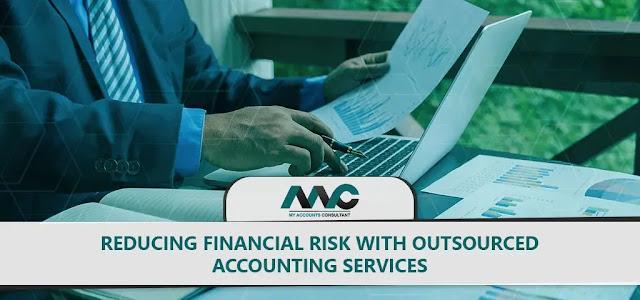Outsourcing your accounting services can be a great way to reduce your financial risk. By working with an experienced accounting firm, you can get the help you need to keep your finances in order and make sure that your business is as successful as possible. Not only will this save you time and money, but it can also help you avoid unpleasant surprises down the road. So if you're looking for ways to reduce your financial risk, outsourcing your accounting services may be the solution for you.
Recognize the Risk Posed by a Complete Reliance on Internal Accounting
Most businesses rely on their own internal accounting systems to track their financial health and performance. While this can be an efficient way to manage finances, it also poses a risk if something goes wrong with the accounting system. In order to recognize and mitigate this risk, businesses should take steps to ensure that they have a complete backup plan in case of an accounting emergency. By doing so, businesses can maintain confidence in their financials and keep operations running smoothly.
Develop a Thorough Understanding of Costs
When starting any business, one of the first things you need to do is calculate your costs. This includes both fixed and variable costs, as well as initial and ongoing expenses. It's important to have a thorough understanding of all these costs so you can make informed decisions about your business. With accurate cost information, you can better assess whether a particular opportunity is worth pursuing, figure out how much you need to charge for your products or services, and more. If you're not sure where to start when it comes to calculating your costs, don't worry - we'll walk you through it!
Recognize the Potential for Employee Errors
No matter how careful your accounting staff is, there is always the potential for costly employee errors. In order to mitigate this risk, it's important to have processes and systems in place that identify and correct mistakes quickly. By doing so, you can minimize the impact of any errors that do occur. Additionally, it's important to communicate with your employees about the importance of accuracy and diligence in their work. This will help ensure that everyone is on the same page and working towards minimizing potential mistakes.
Avoid Repercussions for Non-Compliance
As an accountant, you are likely well-versed in the many compliance regulations that must be followed in order to maintain a good standing with the government and avoid any penalties. However, even the most experienced professionals can make a mistake from time to time. In this blog post, we will outline some of the common repercussions for accounting firms that fail to comply with regulations.
Sidestep Cash Flow Problems
Are you having cash flow problems? If so, don't worry – you're not alone. In fact, many businesses face cash flow issues at some point or another. But that doesn't mean you have to just sit back and accept them. There are a number of things you can do to sidestep cash flow problems and keep your business running smoothly.
Here are a few tips to get you started:
1.Make
a budget and stick to it.
2.
Collect payments as soon as possible.
3.
Cut costs wherever possible.
4.
Keep an eye on your accounts receivable turnover ratio."
Myaccountsconsultant Reduces The Risk
Maintaining
adequate accounting records is critical for any business, yet it can
be challenging to keep up with all the changes in the tax code and
other regulations. That's where Myaccountsconsultant comes in. We are
experts in accounting and bookkeeping, and we can help you keep your
books in order so that you can focus on running your business. We
reduce the risk of IRS audits and help you stay compliant with all
relevant regulations. Contact us today to learn more about our
services!
Contact
us here
for
hire accounting company for startup business.

